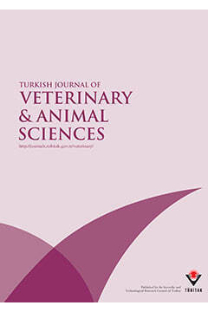Anestezi Edilmiş Sıçanlarda, İskemi ve Reperfüzyonu Takiben Oluşan Aritmiler Üzerine ATP-Bağımlı Potasyum Kanal Blokeri, Glimeprid’in Etkileri
Son yıllarda ATP-bağımlı potasyum kanal açıcıları yada potasyum kanal blokerlerinin antiaritmik etkisinin olup olmadığı yoğun bir şekilde tartışılmaktadır. Potasyum kanal blokerlerinin, özellikle glibenclamide’in, antiaritmik etkiye sahip olduğunu öne süren çok sayıda in vitro çalışma olmasına rağmen, aynı sonucu destekleyen çok az sayıda in vivo çalışma bulunmaktadır. Bu çalışmada sol koroner arter (LAD) 6dk. süreyle bağlandı ve bunu takiben bağ gevşetilerek 6dk.lık reperfüzyon sonunda canlı kalan sıçan sayısı hesaplandı. Glimeprid (1mg/kg), canlı kalma oranının (%75/kontrol grubunda %12) artırdı ve ventriküler fibrilasyon yoğunluğunu (%43 / kontrol grubunda %87) azalttı. Aynı dozlarda (25mg/kg/100 ul) glimeprid ve glibenclamide’in venktriküler fibrilasyon yoğunluğu üzerine belirgin, farklı bir etkisi gözlenmedi, ancak canlı kalma oranı glibenclamide verilen grupta daha yüksek (/%82 / glimeprid verilen grupta %47) bulundu. Aritmilerin yoğunluğu ve arteriyel kan basıncı yada dakika kalp atım sayısı arasında bir ilişki bulunamadı. Sonuç olarak, daha önce bildirilen glibenclamide’in etkisine benzer şekilde, iskemi ve reperfüzyon aritmileri üzerine glimeprid’in doza bağlı olarak defibrille edici aktivitesi bulunduğu saptanmıştır
Anahtar Kelimeler:
Kalp, İskemi, Reperfüzyon, Aritmiler, Glimepirid
The Effect of ATP-Dependent Potassium Channel Blocker, Glimeprid, on the Arrhythmias Observed Following Ischemia and Reperfusion in Anesthesized Rats
In recent years, it has been discussed intensively whether the potassium channel openers or blockers have antiarrhythmic effect during ischemia and reperfusion. Although there are many in vitro studies suggesting the potassium channel blokers especial-ly glibenclamide have antiarrhythmic effect, there is a very few in vivo expertiment to support the same result. In the present study, left arteria coronaria descendence (LAD) was ligated in 6min and following reperfusion was made by relasing the ligature. ECG and arterial blood pressure were recorded during the ischemia and reperfusion. The heart rate, the length of arrhythmia, the score of arrhythmia and the number of survived animals at the and of 6 min of reperfusion were calculated. Glimeprid (1mg/kg) increased the survival rate of the animals (%75 / %112 in control) and decreased) the incidence of fibrilation (%43/%87 in control. There have not been found significant different effect of the same dose (2,5mg/kg/100ul) of glimeprid and glibenclamide on the incidence of ventricular fibrillation, but the survival rate was higher(%82/%47 in glimeprid treated group), in glibenclamide treated group. There was no relation between the incidence of arrhythmias and the arterial pressure or heart rate. In conclusion, as earlier report-ed to the same effect of lgibenclamide, the defibrillatory and dose dependent action of glimeprid on the ischemia and reperfusion arrhythmias were also observed by this study.
Keywords:
Heart, Ischemia, Reporfusion, Arrhythmias, glimeprid,
- ISSN: 1300-0128
- Yayın Aralığı: Yılda 6 Sayı
- Yayıncı: TÜBİTAK
Sayıdaki Diğer Makaleler
The Effects of Reused Litter Materials on Broiler Performances and Litter Properties
Demonstration of Infectious Bovine Rhinotracheitis (IBR) Virus Antigens by Immunoperoxidase Staining
The Growth of Daphnia magna in Different Culture Media
Application of vec and vech Operators to a Multivariate Mixed Sire Model
Ahmet ALTINEL, Mehmet EVRİM, Mustafa ÖZCAN
Effect of Smoking Methods on Shelf-Life of Rainbow Trout (Salmo gairdneri)
Cumaali AĞIRAĞAÇ, Şevket BÜYÜKHATİPOĞLU
The Effects of Various Cemen Mixtures on the Quality of Pastrami II: Microbiological Quality
